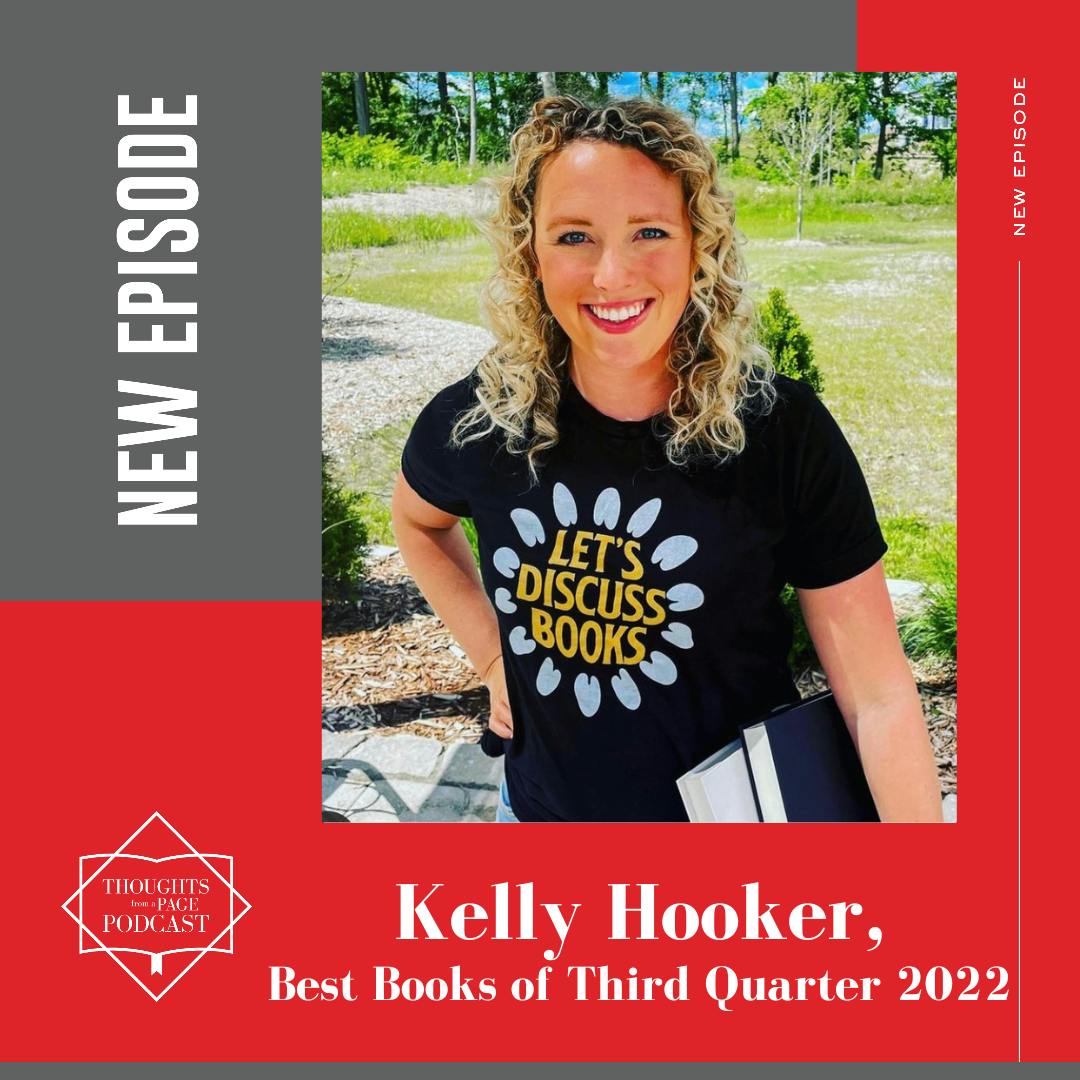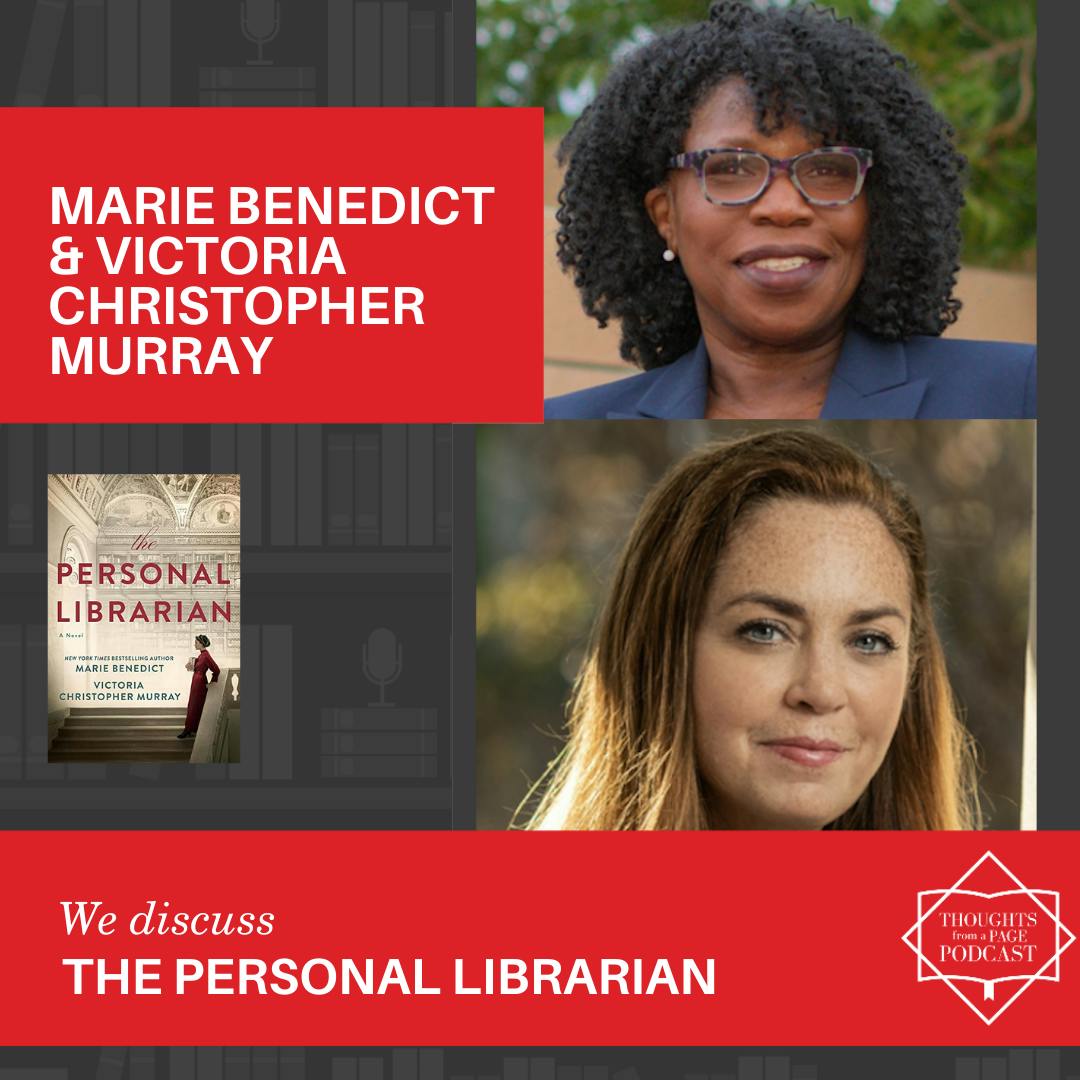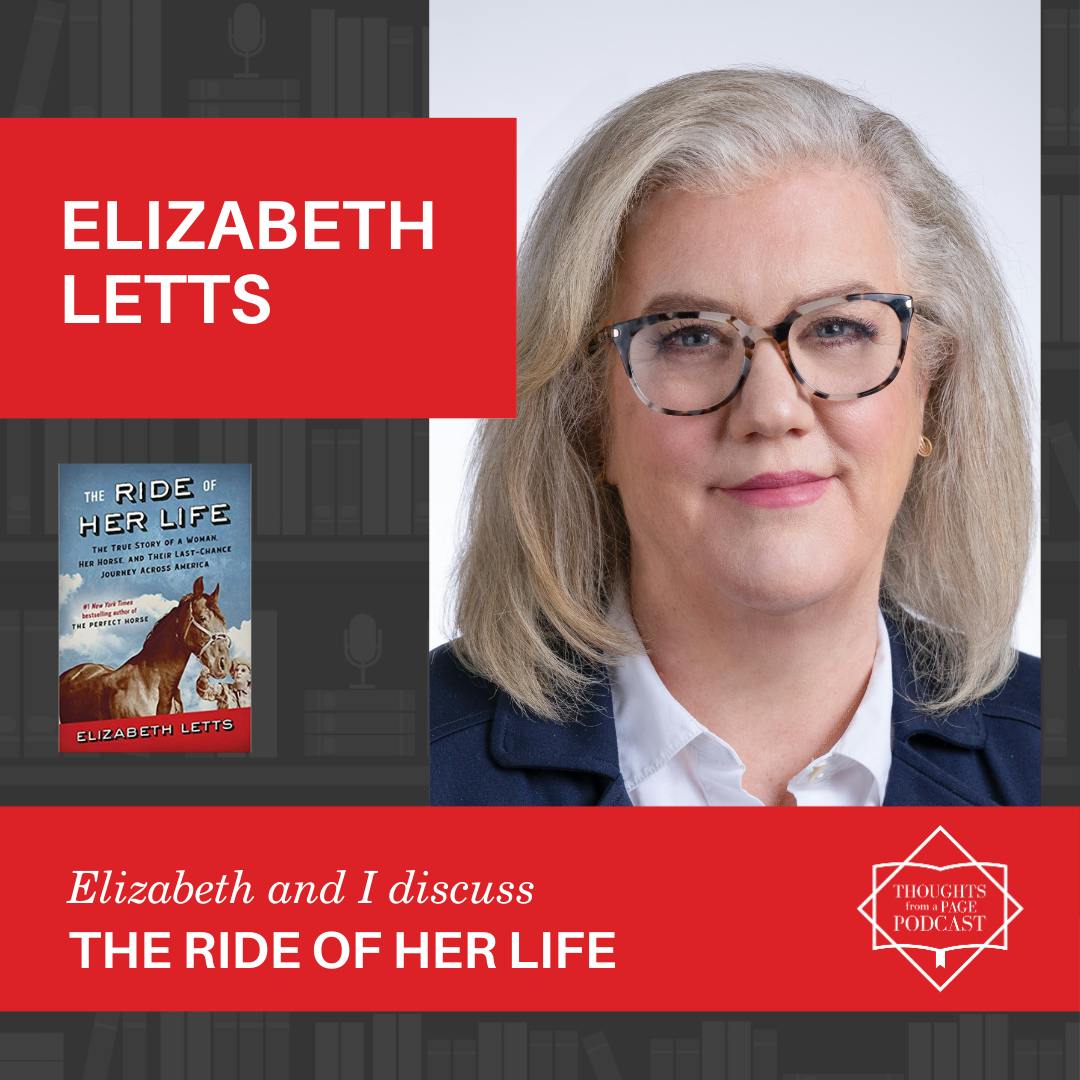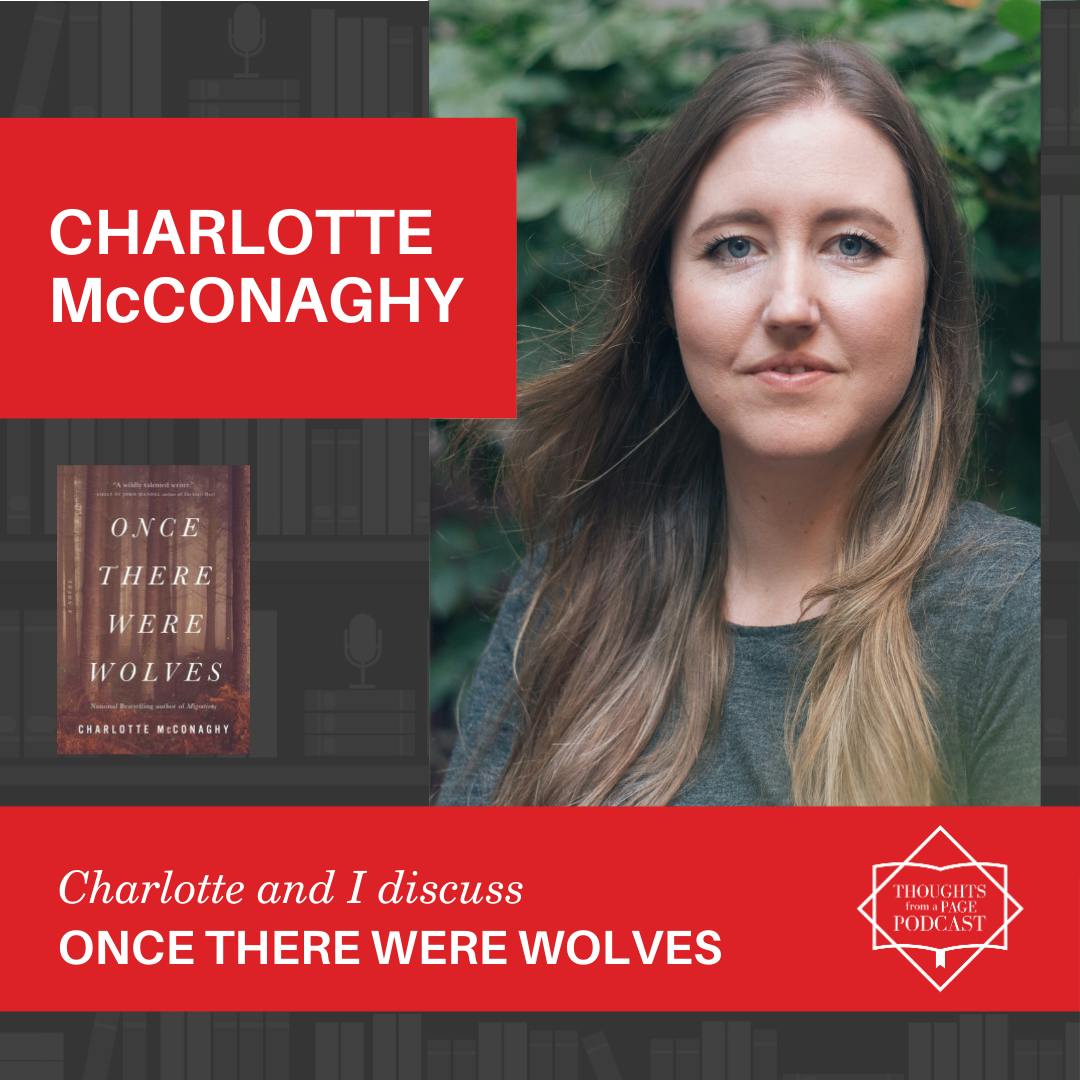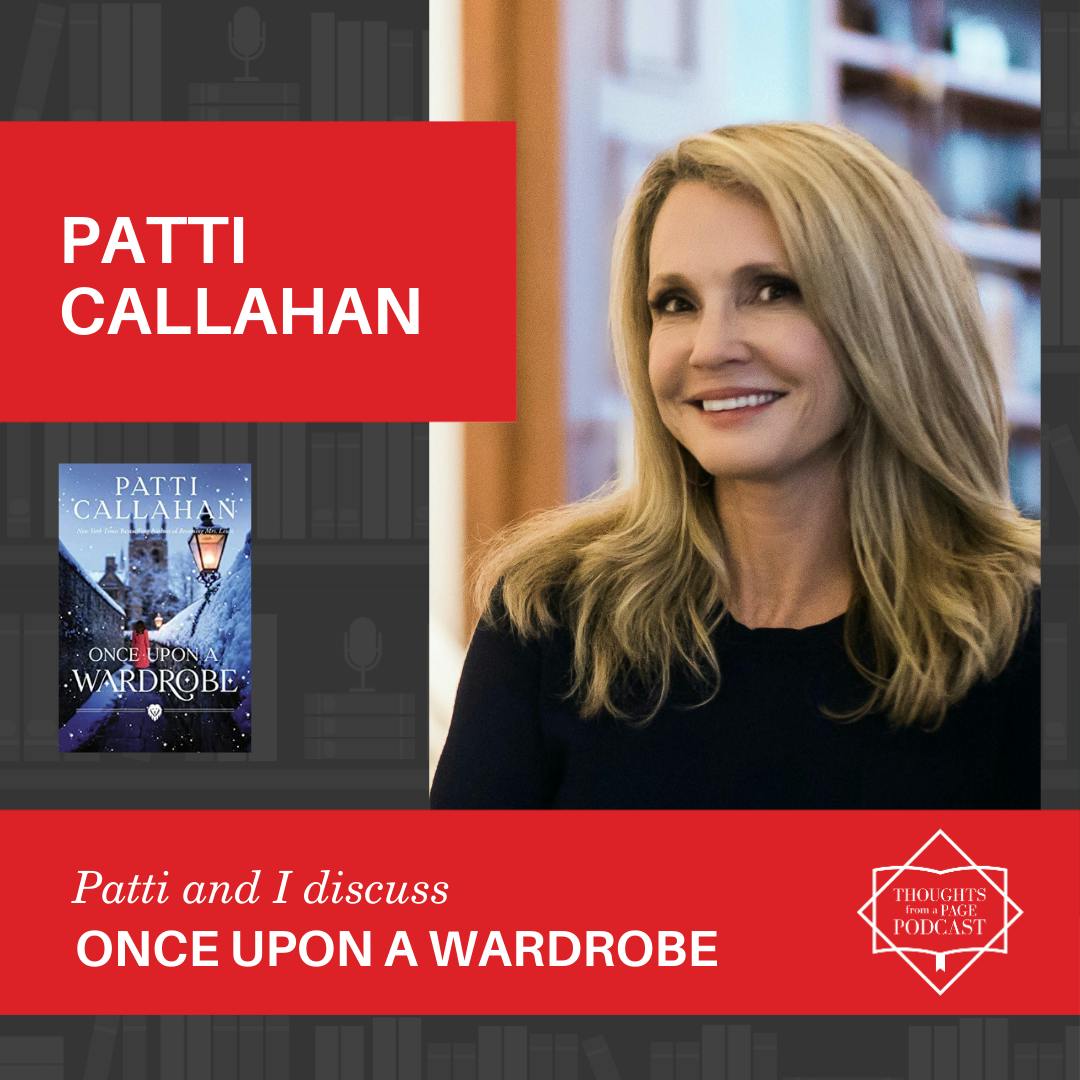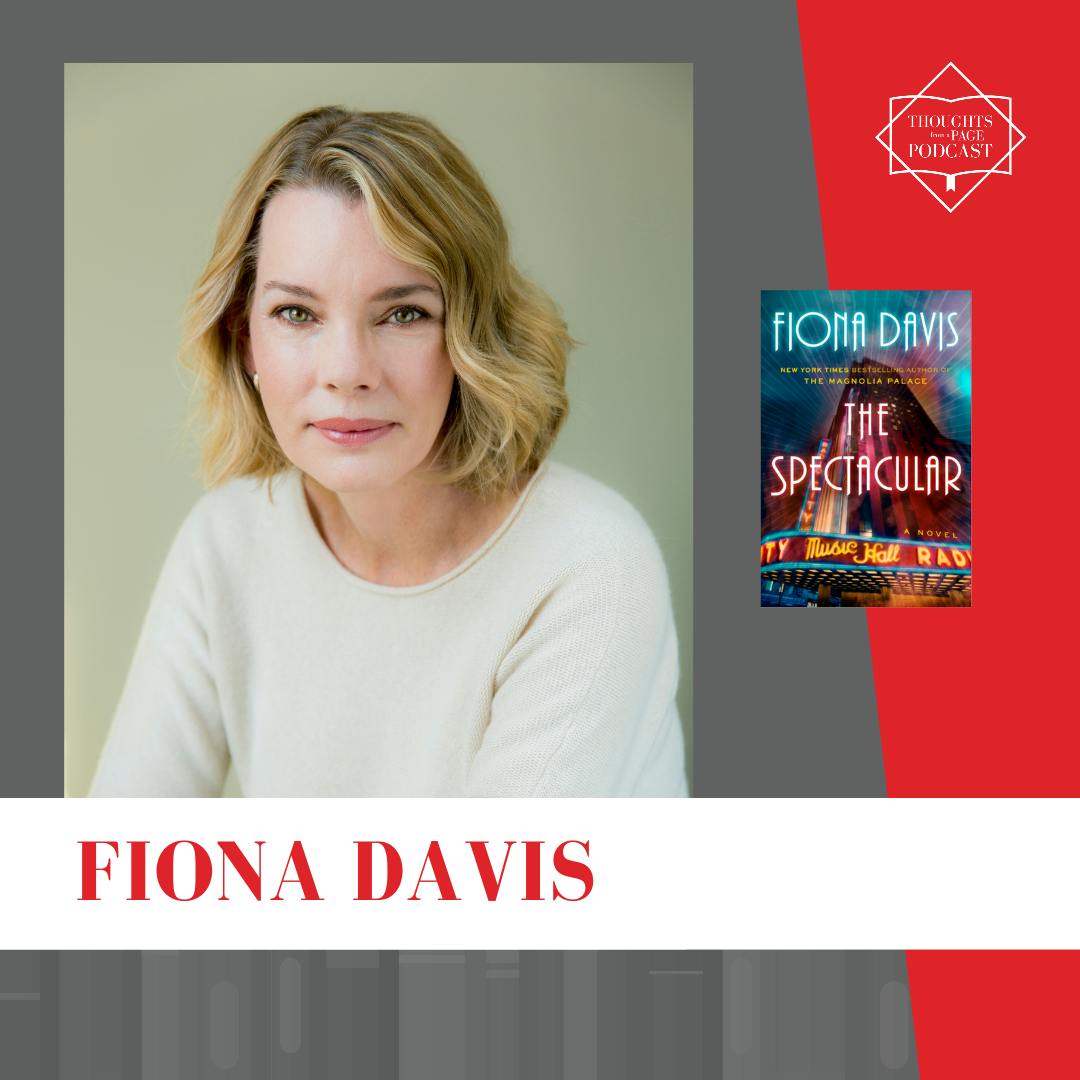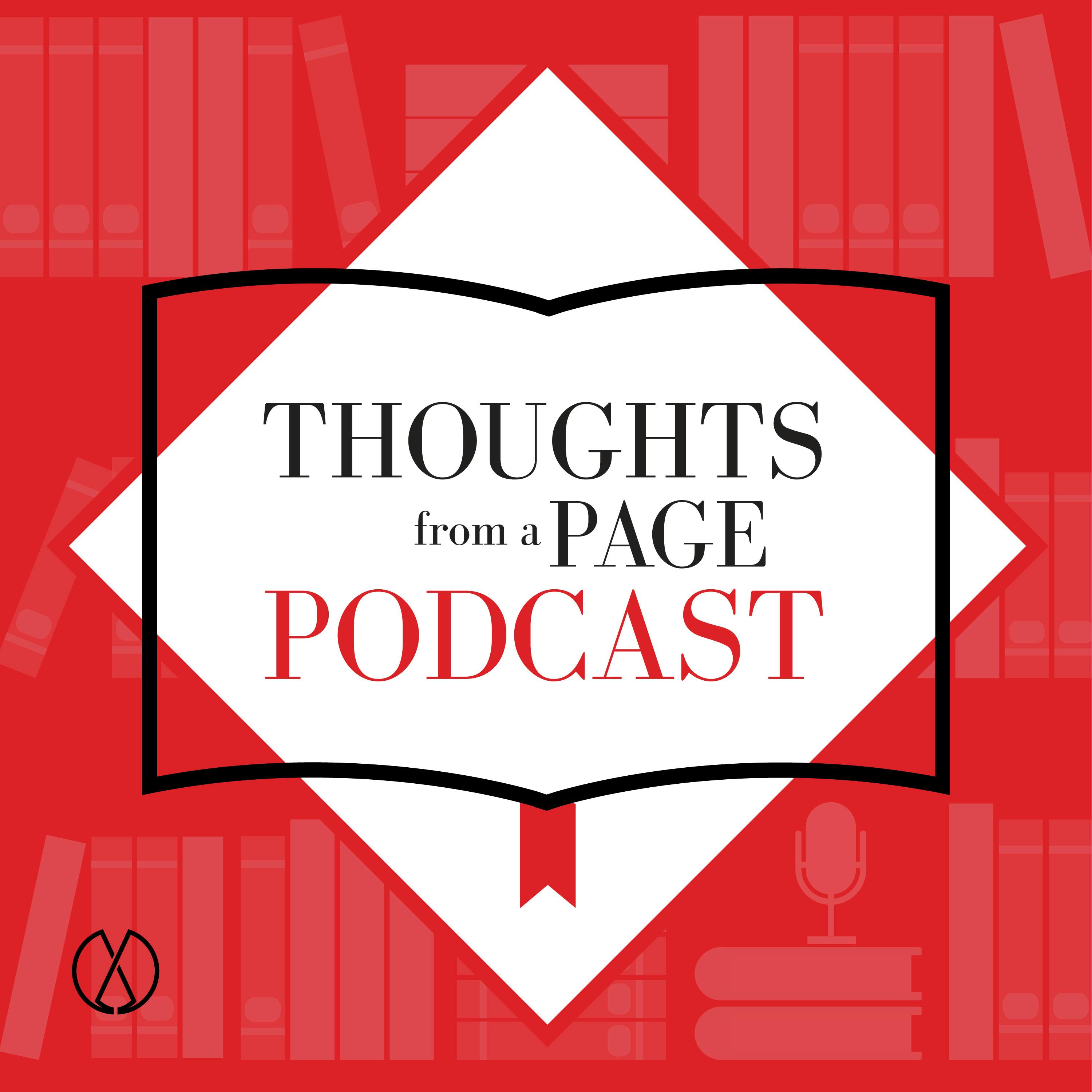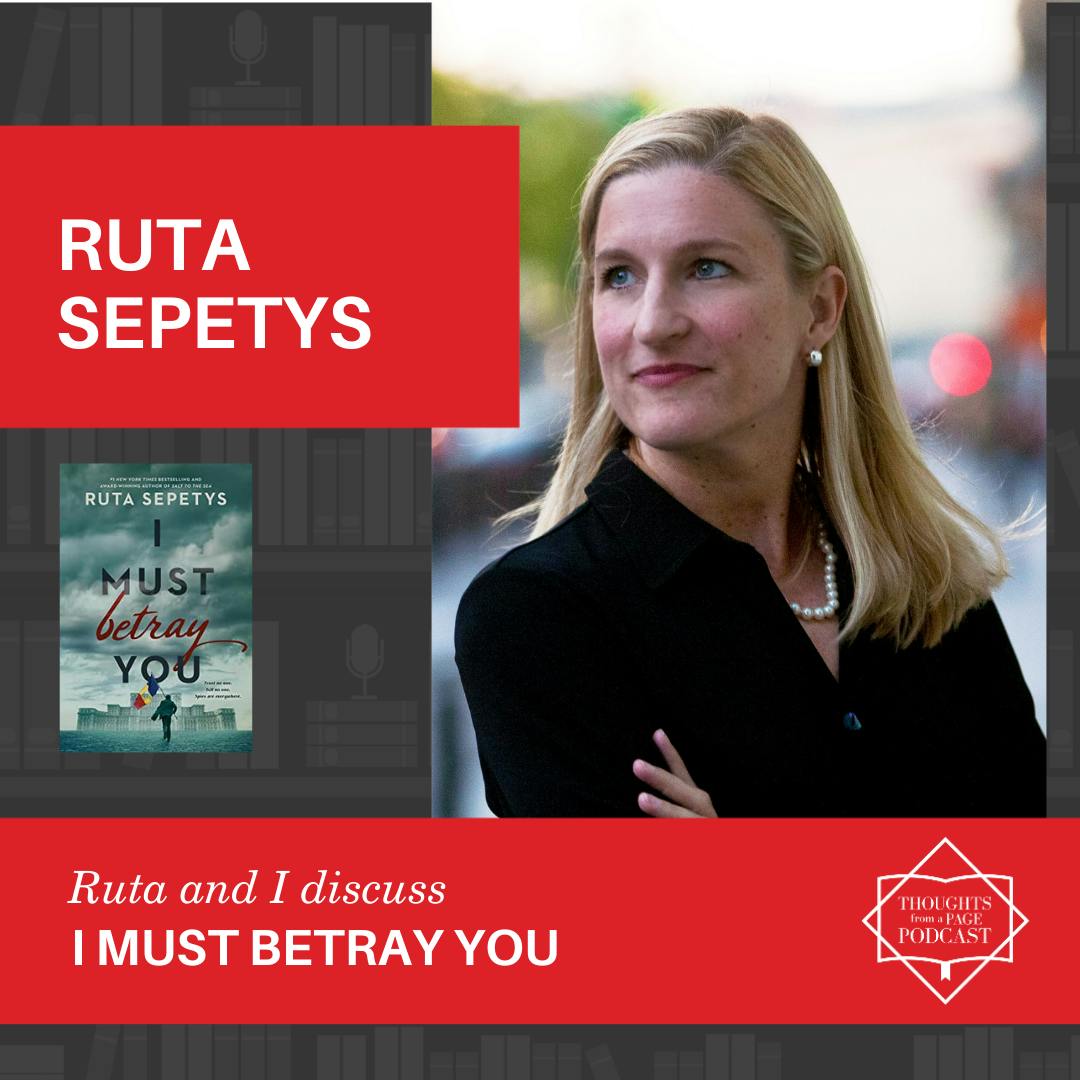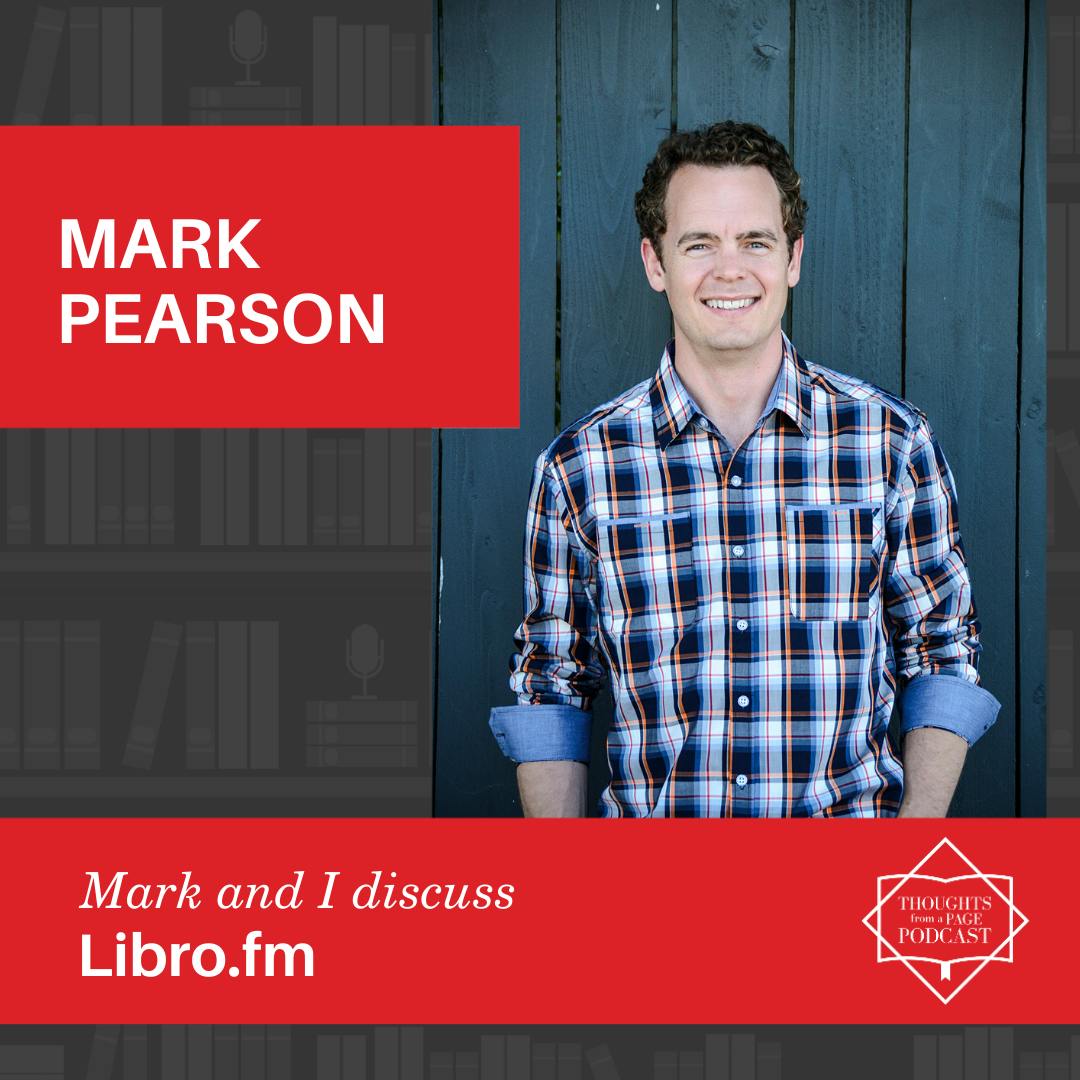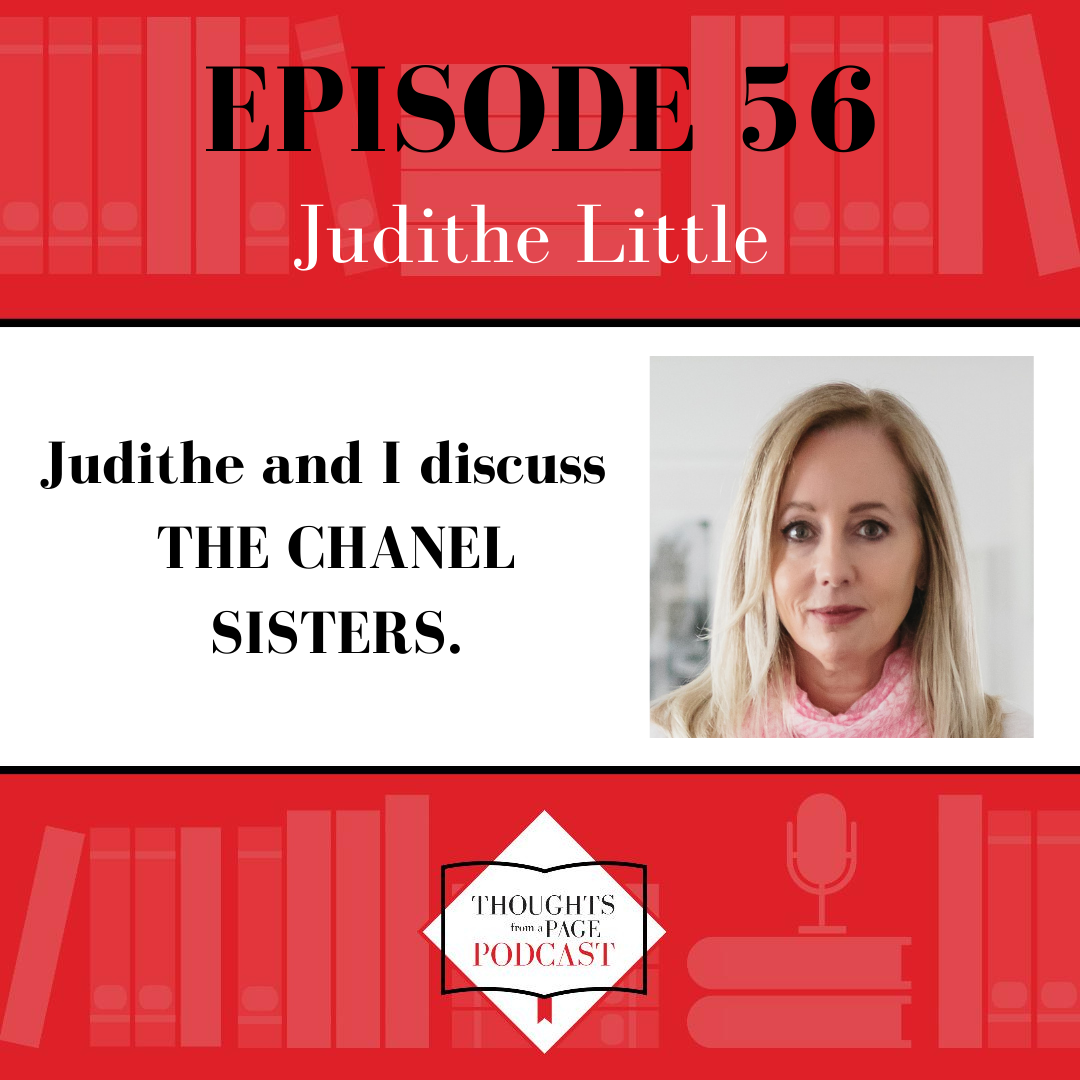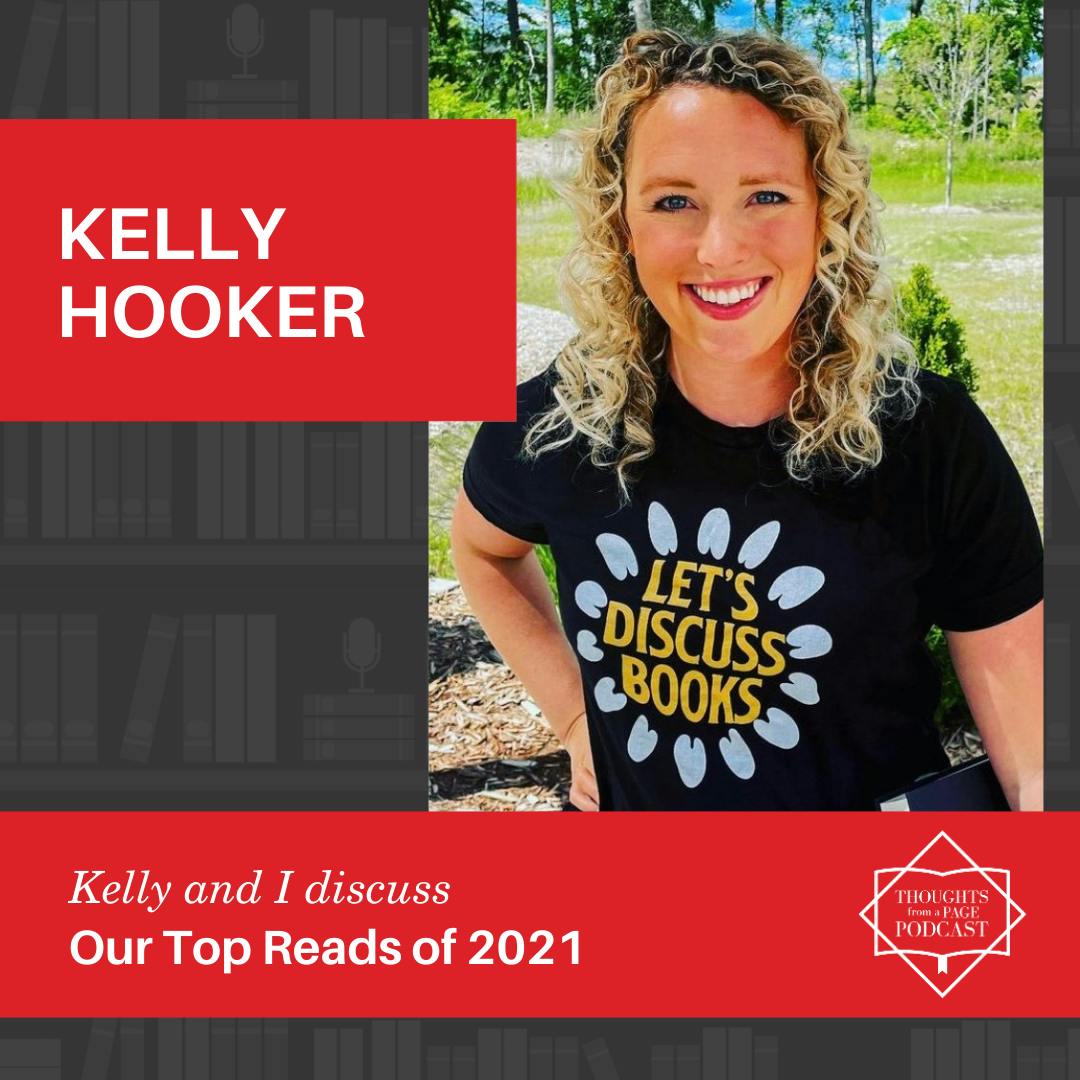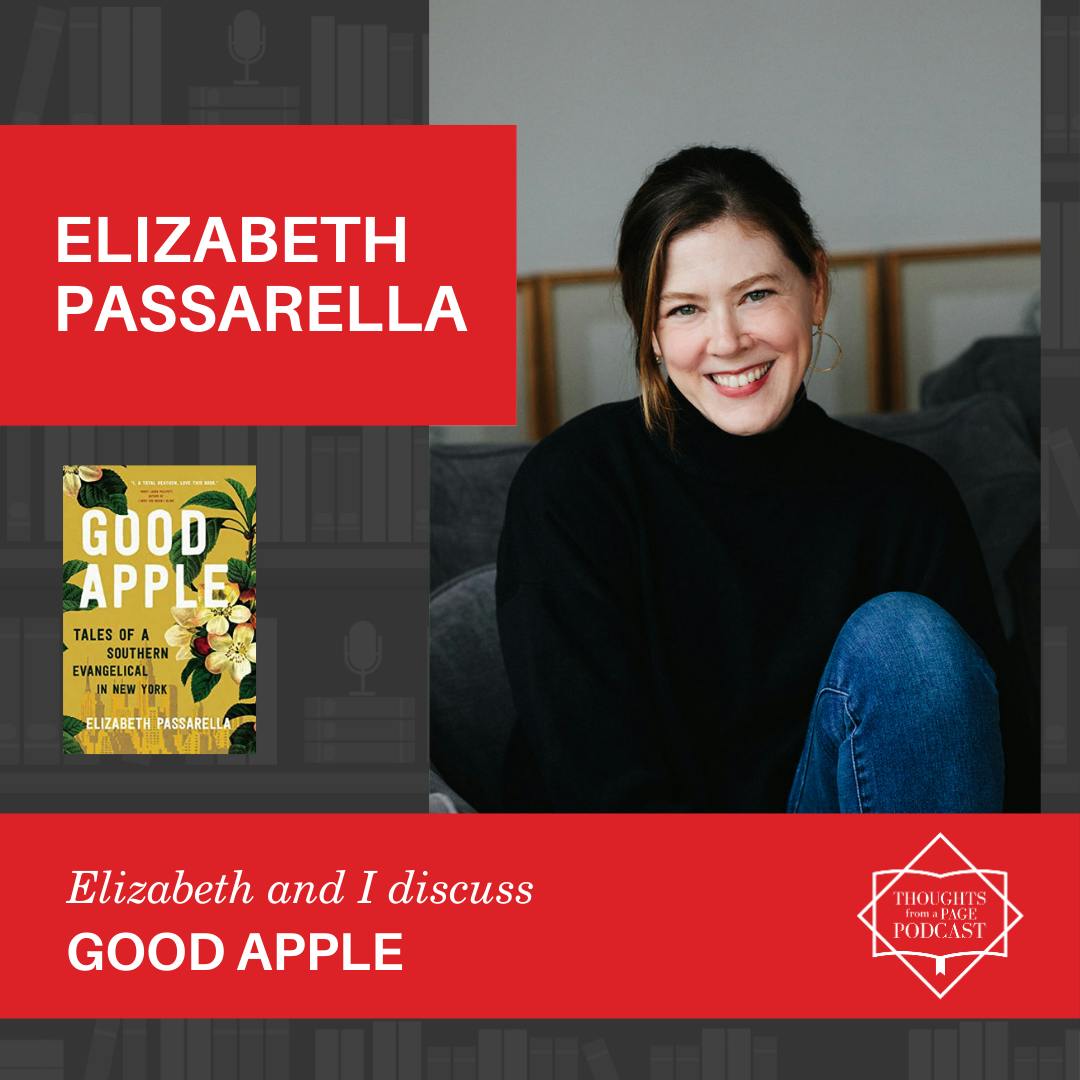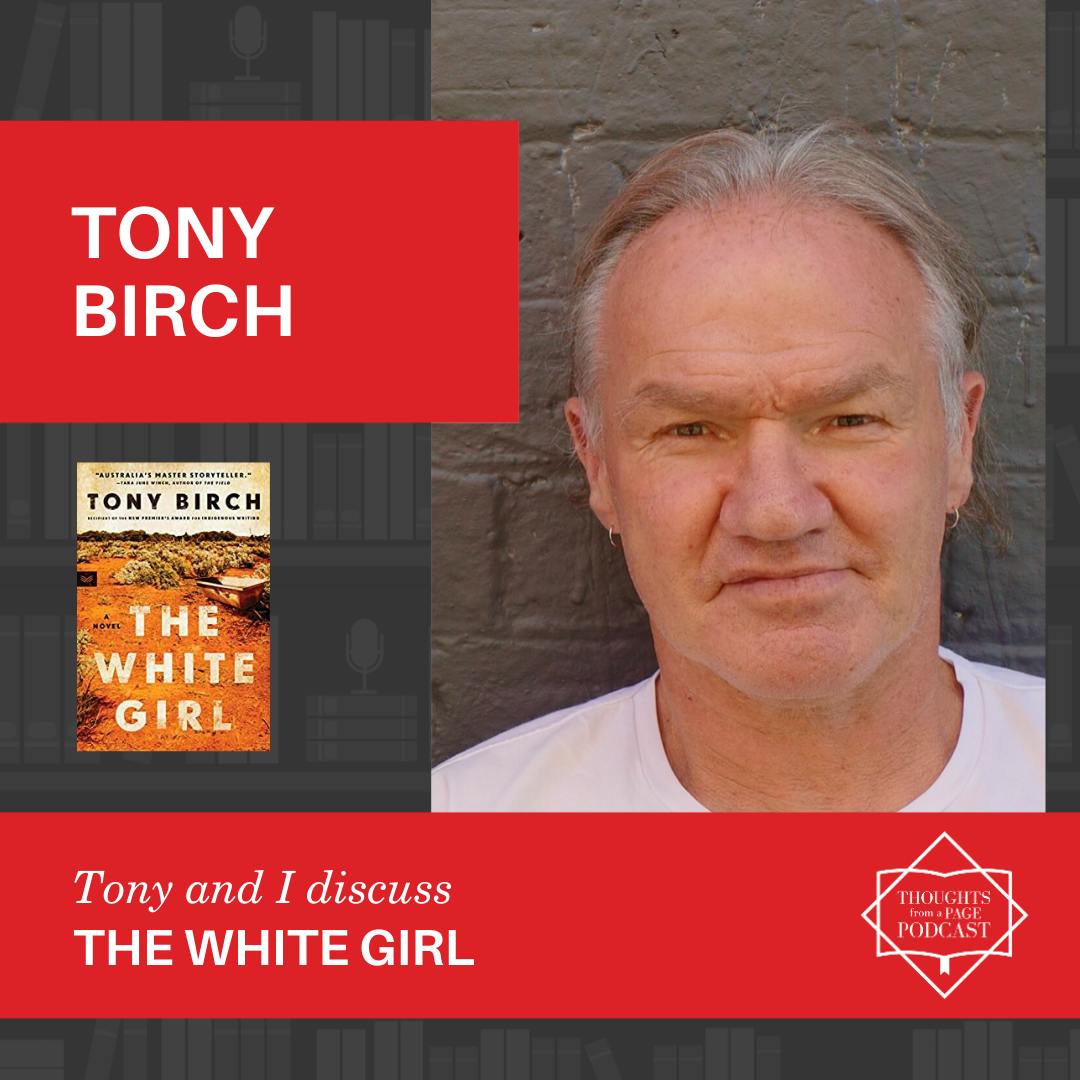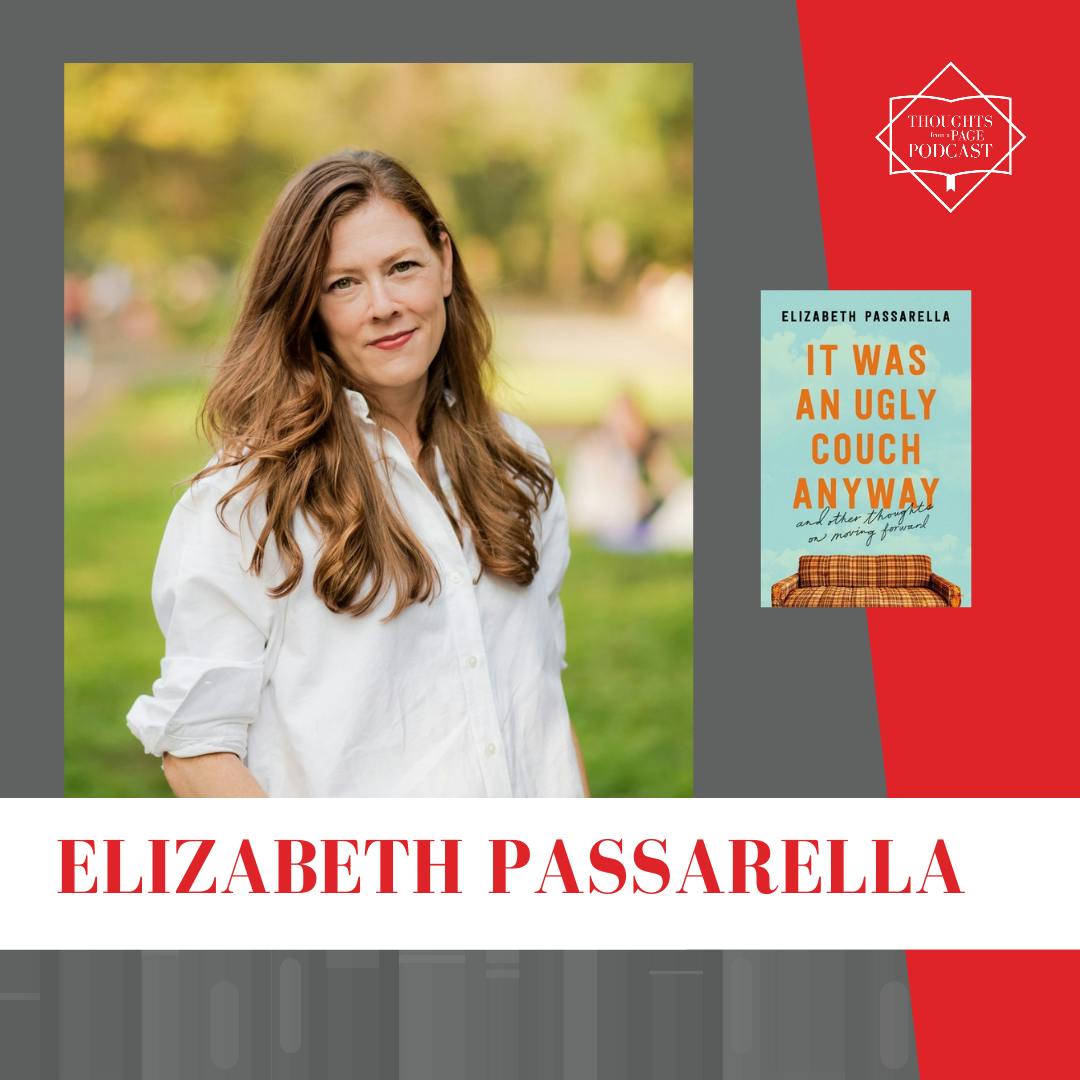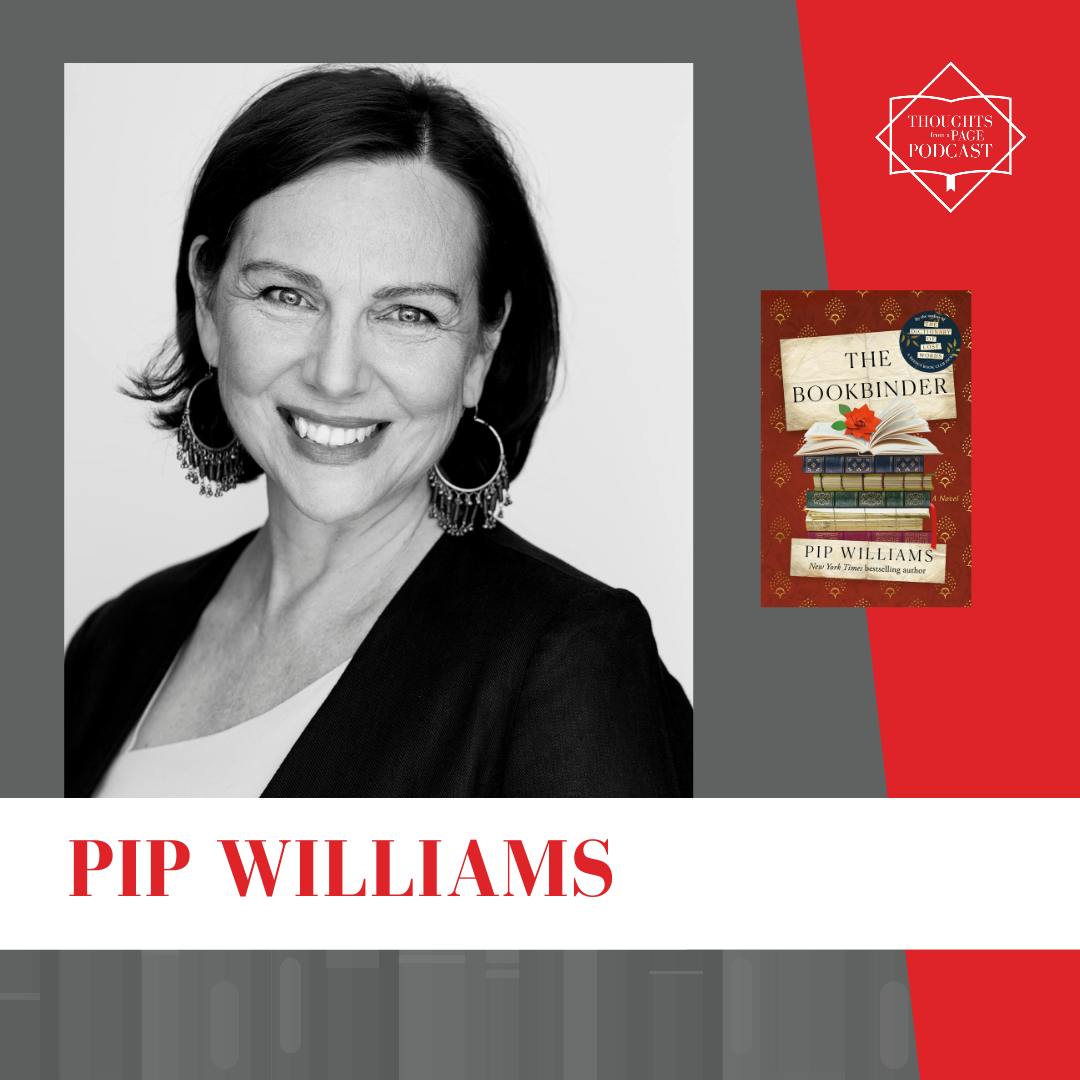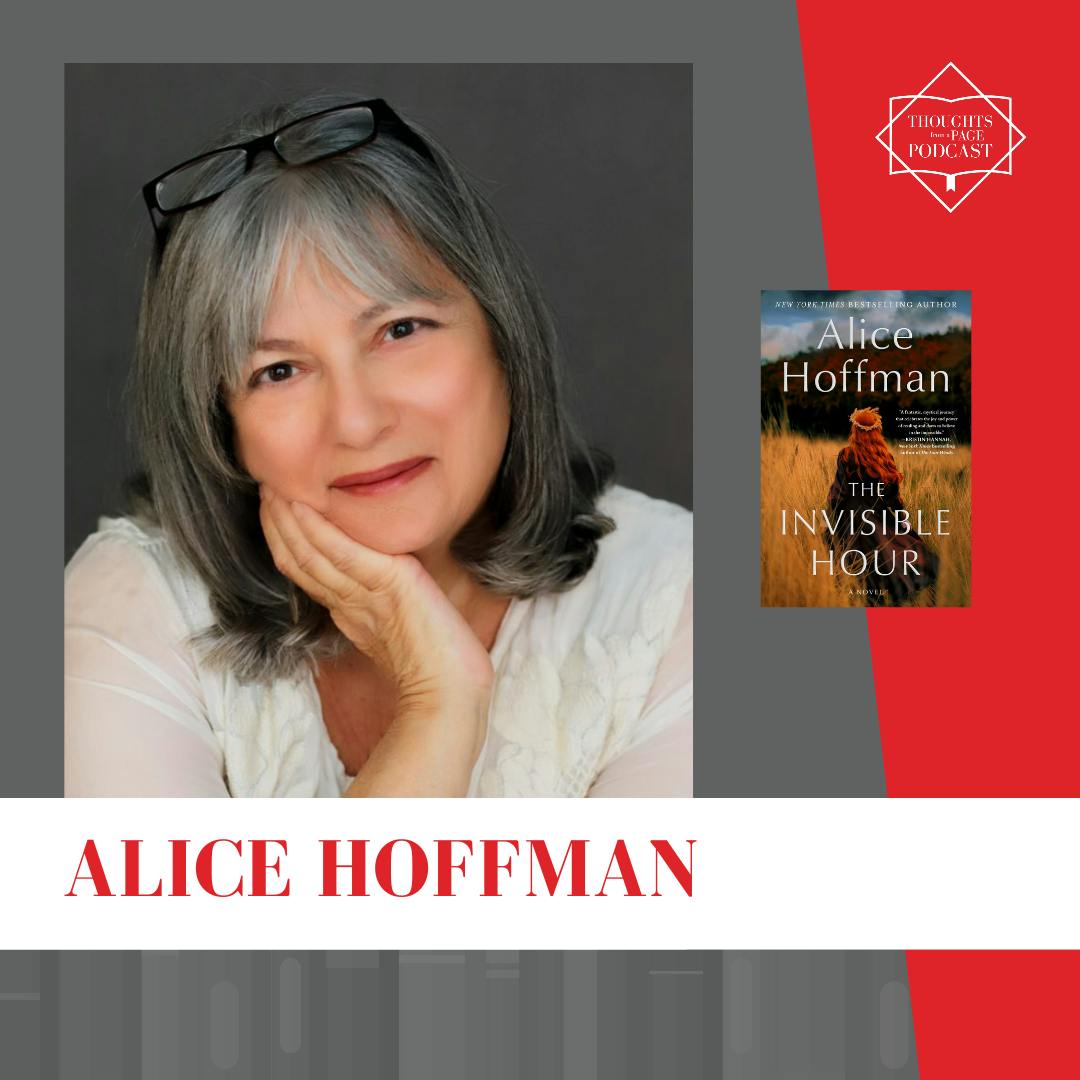
Marie discusses her latest novel The Mystery of Mrs. Christie, writing about the venerated Agatha Christie, telling the stories of women that history forgot, the event that changed the trajectory of Agatha Christie’s career, and much more.
Marie discusses her latest novel The Mystery of Mrs. Christie, writing about the venerated Agatha Christie, telling the stories of women that history forgot, the event that changed the trajectory of Agatha Christie’s career, and much more.
The Mystery of Mrs. Christie can be purchased at Murder by the Book.
Marie’s 8 recommended reads are:
- Hamnet by Maggie O’Farrell
- The Nature of Fragile Things by Susan Meissner
- The Rose Code by Kate Quinn
- The Arctic Fury by Greer Macallister
- Band of Sisters by Lauren Willig
- The Invisible Woman by Erika Robuck
- Surviving Savannah by Patti Callahan
- The Testaments by Margaret Atwood
Other books mentioned are The Only Woman in the Room and The Other Einstein by Marie Benedict, I Am, I Am, I Am and This Must Be the Place by Maggie O'Farrell and The Murder of Roger Ackroyd by Agatha Christie.
SUMMARY KEYWORDS
book, agatha, writing, life, read, agatha christie, women, mystery, world, people, writer, disappearance, person, called, world war, woman, fun, explore, christie, happened
SPEAKERS
Marie Benedict, Cindy Burnett
Cindy Burnett 00:07
This is the Thoughts from a Page Podcast where I interview authors about their latest works. My name is Cindy Burnett, and I love to talk about books. If you have any comments or questions for me, you can reach me through my website thoughtsfromapage.com. Today I am interviewing Marie Benedict about The Mystery of Mrs. Christie. Marie is a lawyer with more than 10 years experience as a litigator at two of the country's premier law firms who found her calling unearthing the hidden historical stories of women. Her mission is to excavate from the past the most important, complex and fascinating women of history and bring them into the light of present day where we can finally perceive the breadth of their contributions as well as the insights they bring to modern day issues. Marie's new book, The Mystery of Mrs. Christie, is on my She Reads Most Anticipated Historical Fiction list for winter, and my Buzz Reads January Top 5 Picks. As you can tell, I loved it. Unfortunately, there are occasional sound issues in this episode outside of my control. But that's just par for the course for 2020. This will be the second to last episode before the end of the year. I'm taking a break until December 29, when I'll air my last episode of the year. So just wanted to give everybody that heads up that there won't be any episodes for the next week and a half. I hope you enjoy this episode as much as I enjoyed interviewing Marie. Welcome, Marie. I am so glad you're here to talk with me about The Mystery of Mrs. Christie. How are you today?
Marie Benedict 01:32
I am doing great. I'm so thrilled that you wanted to chat about my new book. It's been a while since we got to talk and last time it was in person.
Cindy Burnett 01:42
I know - that's the hardest part of all of this. We had so much fun together when you came for The Only Woman in the Room. And I was really hoping that that was what was going to happen this time around. But for the next book, we'll have to plan on that.
Marie Benedict 01:53
Yes, by the next book, hopefully we'll be in a position to meet in person again.
Cindy Burnett 01:57
I'd love that. Well, as you know, you're one of my favorite authors. And I just loved this book, and I can't wait to talk about it. And I just know it's gonna resonate with so many people with it being about Agatha Christie, and then especially about a mystery related to Agatha Christie.
Marie Benedict 02:12
Oh, thank you for saying that. It was I have to say a little bit daunting writing a mystery about Agatha Christie a little bit intimidating. But I felt like this book, in many ways is like my other books, a very intimate exploration of the person of who she was, how she came to be this magnificent writer and really a legend. But also I felt compelled to structure it like a mystery. How could I write about the queen of mystery, the queen of crime as she was known without having some kind of mystery at its heart?
Cindy Burnett 02:48
I love that because I'm sure it was hard to kind of begin the process of thinking how do I set this up? How do I make it kind of appeal to those people who already love Agatha Christie and doing it as a mystery I think was just perfect. I loved the format.
Marie Benedict 03:02
Oh, thank you. It was a little bit intimidating, as I said. So hopefully it works. I know I'll never reach legendary mystery heights but I certainly hope if she's up there watching listening somehow. She knows it's a it's a tribute to her really more than anything.
Cindy Burnett 03:19
Well, I think that definitely comes across. So as we're getting started, why don't you tell me a little bit about The Mystery of Mrs. Christie for those that won't have read it yet?
Marie Benedict 03:27
Well, I like always to start out that it is actually based on a real-life series of events. Agatha - at the time the book opens which is in December of 1926 - she is married to a World War 1 hero, a pilot. She's a mother of a young girl, a seven-year-old daughter named Rosalind. She is settled in a home, a really beautiful home called Stiles, in Surrey, England, and she has begun to embark on her writing career. Her sixth novel has just come out, The Murder of Roger Ackroyd. So on the evening of December 3rd, it was a really frigid night in Surrey, Agatha went missing. Her car was found in the very early hours of the morning of December 4th. It was a Morris Cowley; it was found running on the edge of like a steep hill that led down to a still, deep lake which was referred to locally as the Silent Pond. Her belongings were scattered all around the car, including a heavy coat, which obviously would have been helpful for her on that frigid evening. The car was found in the early hours of the morning still running, as I mentioned, and she was nowhere to be found. No one knew where she was. And people were immediately worried about this, this woman. I mean, she was not the famous Agatha Christie we know now. She just started out her career; she had sort of a local reputation. But you know, she was this lovely young mother, wife of a World War 1 hero. She had grown up in Devon in this sort of upper class but not aristocratic-quite existence. And people were really shocked that something terrible happened to her. And it launched the largest manhunt in England's history. Thousands of volunteers combed the fields, dredged the lake, all sorts of various police departments got involved trying to find her. This went on for 11 days. The government was really getting frenzied because the media attention was crazy over this, it really kind of took hold and even spread internationally. And they enlisted the help of Sir Arthur Conan Doyle, writer of the Sherlock Holmes mysteries, to try and locate her to no avail. And then just as suddenly, as she disappeared, she reappeared on the 11th day, never explaining what happened, other than to say she didn't know because she had amnesia, and she never spoke about it again. And that mystery of really what happened to her, why it happened, has never really been solved.
Cindy Burnett 05:51
That's so intriguing, especially, you know, because it's her, but you just wonder what happened. And obviously, you did some research, and you're going to talk a little bit about that. But I think these days, people might think it was a publicity stunt. And these days, you couldn't do that you couldn't go someplace for 11 days, and no one be able to find you. So it's a little hard to even imagine that, that you could do something like that.
Marie Benedict 06:11
Right. I mean, I don't think you really could. It's so hard to be lost these days, whether it's from your phone being tracked, or your credit card bills being looked after, it's just not the same world. And in some ways, it's, it's less about where she went, and more about why she went, how she did it, the circumstances of her disappearance. And yeah, I in a way, it was really fascinating, because it's a void. Very often it's in those absences, those shadows of history where we really don't know what happened, that that really interesting fiction comes into play. And in my case, you know, really fiction sort of derived from who I understand her to be. And as always, with all of my books, I'm interested in how she came to be this magnificent person who really left us with such a huge legacy. So as I looked at this mystery, it really occurred to me that this might be really a huge part of her origin story. I look at all my women as superheroes, and in many ways, my books are their origin stories. How did they come to make this contribution to which we are all beholden in many ways, and this disappearance, I believe, was a huge part of who Agatha Christie ultimately became in the literary canon.
Cindy Burnett 07:28
Do you think it changed the trajectory of her career?
Marie Benedict 07:31
I think it did. I mean, prior to her disappearance, she was definitely a writer on the rise. She had her sixth novel, The Murder of Roger Ackroyd, was her best received novel, her best selling novel to date. And it's quite possible she could have taken off even without this happening, but this event and all the media attention, which she could not have possibly anticipated, really, she couldn't have. To answer your question, which I think you're asking, whether it was intentionally done for that purpose. I don't think so. I really don't. I think there's a lot of things that went into this disappearance. I'm not saying because I don't want to do any spoilers, whether I think it was orchestrated by her or not. When I go into these shadows and history where we don't know what happened, I'm always doing so really as a logical extrapolation of the research I've done about the person. I don't think it was done for that purpose although it might have been certainly an unintended consequence of what, of what transpired.
Cindy Burnett 08:28
That's kind of how I felt as I read your book was that it wasn't intentional in terms of like changing the trajectory of her career. And she could have never anticipated, as you said, the number of people that would be looking for her, and I just wondered if it did, in fact, change her career once it all happened. But it certainly seemed to me that I mean, she had personal reasons for what happened. And again, I don't want to spoil it either.
Marie Benedict 08:49
Yeah, no, no, absolutely. I do think it did change her career to some extent. Again, whether or not it could have happened without that, it's certainly possible. I mean, a writer of her talent - once in a generation, once in a multiple generation talent - so presumably, she would have got there anyway I like to think, but this certainly changed how well known she was. And it certainly changed her as a person. I mean, the person she was before this disappearance, the sort of gregarious, vivacious, young woman she had been, the person who came out on the other side was really quite different.
Cindy Burnett 09:25
I thought you conveyed that very well. And I was so surprised reading about her as a younger person to see how vivacious she was. Because you think of her in later years and she was private and kind of stayed to herself a lot more, it seemed like, so I was surprised to kind of see this portrayal of her when she was younger, as a much more outgoing, energetic person.
Marie Benedict 09:44
I think the media coverage, the attention, which was not flattering from her perspective, probably, that happened during this time, it really shook her to her core. Maybe in the privacy of her own home with her own family, she could be that vivacious person again, but I don't get the sense just from the accounts I've read that that is really who she ended up being on the other end. I think this whole experience really changed her dramatically, which is kind of sad because I really fell in love with the young, vivacious, crazy Agatha Christie. She was a woman who went on a year-round tour of the world with her husband, one of the very first Western European women to surf. She was really maybe the first. She had done so many things that were bold and really uncharacteristic of a girl from her class. She really came from this rarefied, moneyed world, again, not quite aristocracy, but sort of that E.M. Forster-life, and those girls really didn't serve or become nurses in World War 1. She had a real gusto for life. And I'm not saying she didn't afterwards, it just like all of that energy was really channeled into her writing after that. She really was very much changed as a result of it. It's interesting, I don't often, I'm always when I write about the historical women I write about, I'm looking at a particular period in time of their lives. I don't do the whole arc of their life. It's not a biography or anything. I'm interested sort of in their origin and that transformative moment when they create this legacy or become that person that's necessary to rise up and claim that legacy. But in this case, I actually, I don't know if you're familiar with the writer Kate Quinn. She wrote The Alice Network and The Huntress, wonderful writer. We found a crossover in our research. She was writing a book called The Rose Code, which comes out in March, about Bletchley Park, which is about these codebreakers during World War 2. And Agatha Christie cropped up in her research. And we found this wonderful cross section of her world and my world, and we wrote a little novella that comes out in February about that crossover. And it's interesting, I got to look at Agatha Christie later in life, which I don't often get to do with the women that I write about, and see how this event shaped her life. And yet still, at her core, there was this adventurous, a brilliant woman, I feel like later in her life, she just put a mask on, you know what I mean, to sort of work her way through society.
Cindy Burnett 12:07
Well, she probably felt like she had been exposed very openly and for a while and to try to recover from that probably tried to keep everything as private as she could. I just finished The Rose Code, and it's really good. So where is your novella going to be?
Marie Benedict 12:23
Actually, it's an Audible Original. That was the only thing we could do in such short notice. We actually were doing an event together about a little over a year ago. And Kate told me about this, and we researched it. And wow, what we discovered, what I discovered about Agatha was amazing. I mean, she was living during World War 2, she was living in this famous building called the Isokon Building, which was a hotbed of Russian spies. I mean, for real, like people who were later prosecuted, and she wrote a book during this time period called N or M, which is not very well known. It's one of her own spy thrillers about middle-aged, which she was at the time World War 2, a couple that had kind of been marginalized from war work wanted to make a difference. And they rooted out spies. And I thought, Oh, my God, what are the odds that she's writing a book about wanting to contribute during World War 2, during World War 2, about rooting out spies, when she's living in a building that's literally riddled with spies in and of itself. But it did give me this really incredible look at her later in life, which I don't often get to do. So it was really fascinating for me.
Cindy Burnett 13:33
That's so fun that you all got to do something together, too.
Marie Benedict 13:35
It was a blast. I mean, I loved working with Kate on this. She has such an incredible, nimble mind. And it was just really a fun project. And it kind of proceeded so seamlessly, because first of the material was there, but most importantly, because we had such a fun connection. And we could see the story evolve before our eyes, but also the parallels and the two women we were writing about. I don't know if you recall from The Rose Code, Osla is one of our main characters, and she's kind of a debutante who was very bright, but no one takes her seriously, and there's so many parallels between her and Agatha. Although Agatha, instead of taking the limelight, recedes from the limelight at this point in her life. They're both brilliant, underestimated women, which of course is a theme I like to explore in my books and is so true of many of my heroines. So it was fun to kind of play that out. And wow, did Agatha provide a lot of material for that. It was fantastic.
Cindy Burnett 14:29
Oh, I can't wait to listen to it. I just think these Audible Originals are so much fun.
Marie Benedict 14:34
Oh, it's a blast. It's really a fun way to explore a different aspect of your work. We didn't know that we were going to be writing it for an audio format. But I did write another one called Agent 355. About a female Revolutionary War spy that came out last summer, and it was just, I knew it was going to be Audible. I knew it was going to be audio. So you write it slightly differently, which is kind of fun to do. And in this case, it allowed us to explore this really fascinating moment in time that we might not have expanded into a whole book, but really is insightful and fun in its own way. And the Audible Originals allow you to kind of play with format, play with length, in a way that you might not get to with a full length book. So that was kind of a fun, secondary part of writing about Agatha Christie.
Cindy Burnett 15:17
And that length is nice I think. To have something a little shorter if you're wanting to walk or exercise; you can get through it decently quick, which is nice.
Marie Benedict 15:24
Especially when you're doing historical research. It allows you to focus in just very narrowly at this one moment, as opposed to what I do what I normally do, you know. I'm not doing the whole life, but I'm doing a decade or so; you've got to know so much about every single thing that's happening. So it was just it was a really fun snapshot. And I feel like it made me know Agatha, even better, to kind of see what after this amazing disappearance, this tumultuous period in her life, to see what she looked like on the other side. And it really gave me some insights I think both into what her life looked like then, but also into what happened during her disappearance as well.
Cindy Burnett 16:02
I'm sure the whole project for you was so interesting. What surprised you the most about writing this book?
Marie Benedict 16:07
What surprised me I think was I was so overwhelmed with the idea of it once I realized it was going to be a mystery unto itself. I almost needed to write it that way. What surprised me is, once I committed to that kind of overcoming my inhibitions and my worries about it, how much fun it was to write. I really enjoyed it. I loved, I don't know if we've talked about it, it's two different perspectives. It's, it's sort of like one of my books, my usual books, in that it kind of traces the arc of her life from young womanhood into this particular period. So it's about not quite 10, maybe it's about 10 years. But in interspliced with that is the story of the 11 days, told from her husband's perspective, which is something I don't usually do. I usually stick with just the woman I'm writing about. But I wanted the reader to experience it real time and to see the media attention, to see what was being built here. I don't want to say more than that. I wanted the reader to experience her brilliance. Let's put it that way. And the only way to do that was to do it from the inside. And then these two storylines coalesce at the end. I hope it's a look at inside at how gosh, how gosh, darn smart she was. But it was just really fun to write it. It really was.
Cindy Burnett 17:16
Well, I thought it was genius doing it from his perspective, because as you said, the reader is sort of learning things as he's learning things, but also learning more about him and what he's been up to.
Marie Benedict 17:25
I always hesitate with that too because again, it's fiction. I don't like to paint a negative portrayal of someone who was actually alive at one point. But again too, I think I make clear at the end, that it's all fiction, right? And one of the pervasive themes of the book, which is really drawn from Agatha's own writing, is that we are all unreliable narrators of our existence. Which is something I hope people draw from the book is, especially in this day and age of social media, where we are always curating our lives from the outside. And that is very much the theme of the book, it explores it probably on a deeper level than most of us think about it. It is a pervasive theme in modern society. And I think it's something we really need to think about is what is real and what is not. And how important is it to us to really create to unreliably narrate our lives, as opposed to authentically living them.
Cindy Burnett 18:21
Well, that's something I really talk with, I have three teenagers, 15, and 17, and 19. And I talk with them regularly about that - what you're seeing on Instagram, and they're my oldest is on Facebook, but TikTok, you know, these various places, what they're saying or what they're doing, or even these reality shows. So much of it, it's not really a reality show, it's scripted. And there's a lot happening and, and just to kind of take everything with a grain of salt and realize it is curated versus just truly the lives we're all living.
Marie Benedict 18:48
Exactly. And I think it's interesting that that is something that you can explore even as far back as this period of time. It's not just because we're recording our lives real time with all of our devices now. That's something that was available as an option back then too. And now, of course, in the book, it's taken to the nth degree, and we don't, I hope most of us don't do that. It is something I really invite people to think about. And again, that's one of the reasons why I chose her and chose the story. All the women I write about, you know, obviously are people who left a big imprint on our world, but they're also women who are dealing with really modern issues. In Agatha's case, it's this question of being an unreliable narrator of our own lives, but it's also the question of ambition and being a woman. Back in Agatha's time, being ambitious, as a writer or whatever career you were going to pursue, was like a dirty word. Like that was something that, her ambition, was something that she had to hide, something that she could do under smoke and mirrors, right when the household was running perfectly and the child was perfectly tended to and dinner was on the table. It was something she could do when it wasn't disturbing anything else. And to some extent, I think that question of ambition, familial responsibility, which was so pervasive in Agatha's life prior to her disappearance, I think that's that's an issue we as women still deal with today.
Cindy Burnett 20:09
I agree completely. And I thought a little bit about that as I was reading the book when she was being criticized for not having dinner on the table, or whatever it was it instead she was working on her work, which was going to be bringing in income for them, and obviously was something that she was devoted to. But yes, it is interesting. And that does continue to be, I think, a problem for women today.
Marie Benedict 20:28
Oh, 100%. You know, on one hand, we're encouraged to have careers and be ambitious. But on the other hand, that doesn't mean you can take your eye off the ball in terms of when the laundry is finished, you know.
Cindy Burnett 20:37
Yeah.
Marie Benedict 20:38
It kind of goes back to that unreliable narrator question. As you're doing your work and just trying to strike this balance, you're still always cognizant of how it all looks. Which is really not living your life. That's, that's more like curating it.
Cindy Burnett 20:51
Well, I also think memory is unreliable. I mean, not purposefully, but it just is. I mean, you can have four people and ask them what happened and something they did 10 years ago, you're gonna get four different stories. And it's not because they're lying or telling something different than they thought. It's just truly how they remember it.
Marie Benedict 21:07
Right. I mean we all look at the world we inhabit through our own personal lens. And that lens shapes the tone with which we hear what somebody says, what we focus on, and what we forget. And that's true in this book, too. What Agatha brings forward in her life, what she remembers, what she focuses on, in terms of her existence, is probably very different than what her husband does. And how we play with those facts or untruths, is very much a part of the story, very much.
Cindy Burnett 21:39
Well, you know, me and how much I love covers. I just think this cover is stunning. So tell me all about how that came about?
Marie Benedict 21:47
Well, wow. That's a great question. Because I mean, I am involved in the covers, although my publisher has a wonderful art department and very talented artists. This was one of those instances, this and The Only Woman in the Room, in which I got the cover and I was just blown away. And I really had zero to do with it. I felt like this cover, you know, which has this image of a woman who could or couldn't be Agatha Christie, certainly is of her time period. And there's this wonderful sort of foliage imprint on top of it in which we only see part of her. And I think that's so masterful. It really shows in many ways, It really alludes to the mystery at the core of the book, but also with a mask behind which we all hide.
Cindy Burnett 22:29
I just love it. And that's so funny that you mentioned The Only Woman in the Room because that's one of my all-time-favorite books and that cover is just beautiful and the end papers for that book and everything. I mean, I just...
Marie Benedict 22:42
Have you seen the endpapers, because you probably have an arc, have you seen the endpapers for The Mystery of Mrs. Christie?
Cindy Burnett 22:46
I have not.
Marie Benedict 22:47
Okay, so for those of you who don't know who are listening, the endpapers are those when you open up the book, the inside of it that lines the cover and kind of the very first page. My publisher does an amazing job of doing really interesting things that very few publishers do this. Really interesting things in those endpapers which you just alluded to was in The Only Woman in the Room they actually have a full image of Hedy Lamarr. And you get an image of her patent, which is really cool. In this case, The Mystery of Mrs. Christie, are actual newspaper clippings, images of the actual newspaper clippings from her disappearance, and they are amazing. I mean, you really get to see the kind of media attention that was going out at this time. There are a million of them. I mean, this was really a paparazzi event before there were paparazzi. And that also shifted things too; it's really interesting to think about how that plays into the narrative here. And that plays into the outcome sometimes in ways that were unexpected, right? But you get to actually see how real this was and how it really captivated the nation's attention. But not just the nation, really all of Europe and America. There was a huge New York Times article about it. And that really provided me with fascinating research material as well, to see the lens through which she was being viewed at this time.
Cindy Burnett 24:02
Well, are you working on anything at the present that you'd like to share with me?
Marie Benedict 24:05
Yes. I have two books. Well, I just finished a book. You know I do a book pretty much every winter that comes out usually January. This year happens to be December 29th. Right now it is called Her Hidden Genius. I say that because I never really know what the title is going to be until the very end. But it's a story of this brilliant British scientist whose name was Rosalind Franklin in the 1940s and 50s really, tracks her trajectory, her ability through her tenacity and her own intellect to kind of rise up in the scientific profession, which I mean it's it's still very male dominated now, but you can imagine what it was like in the 1940s and 50s. And then to really the crescendo of her existence in which she discovers the double helix nature of DNA. And that structure of DNA of course, is really the key that unlocked our understanding of it and really was at the forefront of genetics period. It explores the way in which her information was utilized without her knowledge or permission by one of her colleagues and two gentlemen at Cambridge to write a paper that ultimately was the basis for the Nobel Prize. So I think it's super timely, women are still super marginalized in the sciences. But we are the beneficiaries of that discovery so much in medicine and science today. And her name is not known. But the men who won the Nobel Prize - Watson, Crick, and Wilson is known.
Cindy Burnett 25:31
That's terrible that she spent all that time and effort and then got no credit whatsoever. But she's now going to because you're telling her story.
Marie Benedict 25:38
She is. And you know, that's where I feel so fortunate to have the opportunity. I feel so honored, but so responsible towards these women to give them sort of the chance to have their lives examined in this way. And for us to understand the very modern issues that they struggled with, the really full nature of their contributions is really, really amazing.
Cindy Burnett 25:59
Well, I think that goes back a little bit to our conversation earlier, we were more talking about memory and how things are recorded, but history and how it's recorded. And I think that's one of the things that I liked so much about The Only Woman in the Room was that I'm very familiar with Hedy Lamarr. I love kind of Golden Era Hollywood and that time period, but I had no idea that she was also a scientist and was responsible for an invention that got us to where we are with our phones and WiFi and all of that. It's just fascinating. So I'm glad that someone is now telling these stories.
Marie Benedict 26:27
Thank you. Me too. I feel so lucky to get to do it. I really do. I have a book coming out in June, which examines yet another really amazing woman. Her name was Belle de Costa Greene. She had been hired by the famous financier J.P. Morgan in the early 1900s to run his library/museum. If you've ever been to New York City and had the chance to see it, it's gorgeous. It was really built to house his world-class collection of ancient manuscripts, rare books, really tells the story of the printed word. It's amazing. And during her lifetime, she became one of the most powerful people in the art world in that position. But she was only able to do so because she hid a core part of her identity. And that was she was African American. She passed as white. And to do that she had to really sort of hide her father's legacy. Her father was the first African American graduate of Harvard. He was a proponent for equality alongside more famous people like Booker T. Washington, and he advocated for the world that had a glimmer of hope of existing in the years after reconstruction, but was sort of suppressed when sort of white supremacy and segregation and the Jim Crow laws rose up in reaction to that. And Belle de Costa Greene inhabited a world where she probably wouldn't even been allowed in the Morgan Library, let alone run it. So it's really a look at this astonishing life and incredible woman, but also really a look at race during a key part in our history. And I was lucky enough to explore it with the most magnificent co-writer Victoria Christopher Murray, who is an incredible writer. An African American woman who's had so many important experiences that lend themselves to this, this book, and it was really a privilege to get to write it with her. So an incredible experience about an amazing, amazing woman. And it's called The Personal Librarian, right? Yeah, that comes out on June 1st.
Cindy Burnett 28:21
Yeah, I was going to say I cannot wait for that one. It's on my SheReads Most Anticipated 2021 Historical Fiction, which will be out in January. But yes, I just cannot wait for that. Both those books sound fabulous.
Marie Benedict 28:31
Oh, I feel so lucky to have told those stories. I really do. It's been a busy stretch. But wow, the stories and the women that I've gotten to like live my life with I feel very, very lucky.
Cindy Burnett 28:42
Well, it has been a busy stretch, because you have this book coming out. Then you have the Audible Original and then you have that book in June. So in a span of six months, three things. That's a lot.
Marie Benedict 28:50
Yeah. And then finishing the book that comes out next January. And then of course, I wrote an Audible Original last summer for July, Agent 355. So basically in a year and a half, I've written five things. It's been nutty, but how lucky am I to get to do this for my work? I feel so fortunate.
Cindy Burnett 29:04
Absolutely. And I wasn't even aware of that there earlier Audible Original so when we're done I'm going to go get that one and listen to it.
Marie Benedict 29:10
Oh, I hope you like it; it's totally different. She was amazing. She was part of George Washington's Culper Ring, that famous spy ring that really helped bring down the British particularly around Benedict Arnold's treason, but I won't tell you too much.
Cindy Burnett 29:24
I can't wait to listen. Well, before we wrap up. I would love to hear what you've read recently that you really liked.
Marie Benedict 29:29
Oh my gosh, so many good things. So I finished Margaret Atwood's The Testaments, which I absolutely love. I'm a huge Margaret Atwood fan. Whatever genre she's exploring, I'm down for it. This one was the sequel to The Handmaid's Tale, which was one of my all-time favorite books, and I absolutely loved this exploration of this dystopian society, which crazily enough seems more possible now than when I read The Handmaid's Tale many, many years ago. I'm actually in the middle of Hamnet, which I don't know if you've read that one. That's a really good one. It's about Shakespeare's child who died. A really interesting look at the creation of Hamlet, one of his books. Let me just say there are so many phenomenal pieces of historical fiction coming out about women in the upcoming months, some of which you probably have read Susan Meissner's new book, Lauren Willig's new book, Patti Callahan Henry's new book, Surviving Savannah. Oh my gosh, I've read so many. Greer Macallister's book just came out a few weeks ago. It was great, Arctic Fury. Erica Robuck has a great book, The Invisible Woman, about a World War 2 spy. There's a ton of great stuff coming out in the upcoming months about historical women. And I'm just so thrilled that this I feel this, like the surge of interest in these women. Oh, I absolutely loved Kate Quinn's The Rose Code. I mean, I know that book intimately, because the characters are so woven into the story that Kate and I wrote together. But wow, what an incredible look at these codebreakers of Bletchley Park and the role they played in the war. So many women and so little known
Cindy Burnett 31:02
Bletchley Park has been fascinating to me for years. I just think that whole place and what happened there and how it all came about, but she really brings it to life. And it's so vivid, and the other one I loved was Erica Robucks' The Invisible Woman.
Marie Benedict 31:14
Yes. Which I just mentioned. Yeah, I mean, I love that that was a great story of a real life spy. Just it's amazing to think of what she did and how she did it. And I don't want to give too much away, but in the circumstances in which she did it.
Cindy Burnett 31:28
I agree. But I feel like historical fiction has had a real boom in the last couple of years. And then it's nothing like what 2021 is going to look like. I ended up having to split my She Reads Most Anticipated into a winter one and then into a just kind of an all year one. Because there are so many awesome books coming out.
Marie Benedict 31:44
I feel like when I started, I mean, I've been writing stuff related to history for a long time now. But when I started writing these books about these women, there just wasn't a ton of that out there. This was maybe five years ago. And I feel like since The Other Einstein, which was my first book of this, I mean, I think of it as like a thematically connected series almost narratively, but when that book came out, there weren't a ton of books about real life historical women who made or created these amazing things. And it's such a delight to see more and more of these books out there. And for us to realize how historical women really populated our past and our landscape, and how indebted we are to them. But how under celebrated they are.
Cindy Burnett 32:25
I agree completely. And so it's made me so happy to start reading more of these stories and learning more about them. And then you mentioned Hamnet. I love Maggie O'Farrell. I mean, I have read almost every one of her books. But sadly, on my perspective, it didn't sound very appealing to me. And so I didn't pick it up. And I didn't request it early. But everyone's been raving about it. So I just ordered it from Murder by the Book. And it's backordered. So when it comes in, though, I'm going to sit down and read it because everyone just keeps talking about how fabulous it is.
Marie Benedict 32:52
Yeah, like you I kind of like skirted away from it. Like, I don't give too much away. But that it's I think the death of a child, it's just not something that lures me in. It's especially right now I just I don't know if I could do it. But the writing is so magnificent. And she's exploring a theme that is very close to my own heart, which is this sort of spark of inspiration. When I go into the past and I look at these women's lives, I want to know how did they come to make or create this thing for which there's so known? What went into that both on a personal level, but also on it like that moment of creativity that spark and the book explores that. Not about a woman obviously; it's really been a I wouldn't say a fun read but a beautiful, lyrical read.
Cindy Burnett 33:33
That's what everybody keeps saying. I love This Must Be the Place. I just think that book is great of hers. And so I always recommend it too to people because I think it's such a beautiful read. And then she wrote that memoir, I Am I Am I Am.
Marie Benedict 33:45
I need to read those two. This is my first book of hers so I wasn't familiar with her until Hamnet, but I'm I just I'm really enamored of her writing. It's gorgeous.
Cindy Burnett 33:53
And it's just kind of funny, the title like Hamnet, you know, at first I was like, What is that? But then once I read about it, I was like I should have clearly picked it up a while ago. So I will get it right over the holidays.
Marie Benedict 34:03
Yeah, well, it's good. That's a good problem to have that her books are so popular, you can't get a copy.
Cindy Burnett 34:08
Yes, no, I agree. And I think the pandemic has just exacerbated that for so many books, you know.
Marie Benedict 34:13
I know that the shipping problems, the printing problems, it's been a thing, but books on the flip side of it, is books have been, I think a savior for so many of us during this time. I don't know if you're a Game of Thrones watcher, but for those who are winter is coming, and winter is coming in a bad big way, at least where I live. We're just about to go into lockdown again. And so I think books will sustain me yet again.
Cindy Burnett 34:38
Yeah, I'm curious to see what's going to happen here. We have been so far okay, so I'm curious to see whether we will enter another lockdown phase or not, because it definitely does seem like things are getting a lot grimmer pretty quick.
Marie Benedict 34:50
Yeah, that's what's happened here. In the span of a few weeks, it just, the numbers just went nuts. And while I don't relish the thought of a lockdown between now and January 4, I also don't relish where we are. So if the goal of our governor is to get kids back in school, and wow, is that an important goal, we can do a lot of things from home. But kids are not learning well from home. And if we have to forfeit going to restaurants and entertainment, so kids can actually be in school. I can't think of anything more important, really, for now.
Cindy Burnett 35:21
I agree completely after watching my kids at home versus in person. And I mean, they'll say the same; it is so much better in person. So I do think that should be the highest priority.
Marie Benedict 35:31
Yeah, I agree with you so.
Cindy Burnett 35:32
So thank you so much...
Marie Benedict 35:34
You and your family stay safe and healthy this holiday season. And thank you so much for wanting to chat about The Mystery of Mrs. Christie.
Cindy Burnett 35:43
I hope you all stay safe and well and enjoy the holidays and enjoy the launching of your fabulous book. And I really appreciate the time and effort and getting to talk with you. And as always, it's so much fun.
Marie Benedict 35:54
Thanks, so much fun. Hopefully we'll be talking soon.
Cindy Burnett 35:58
Thank you so much for listening to my podcast. If you liked this episode, and I hope you did, please follow me on Instagram and Pinterest at @thoughtsfromapage, tell all of your friends about the podcast and rate it wherever you listen to your podcasts. I would really appreciate it. Marie's book can be purchased at Murder by the Book where I work part time, and the link is in the show notes. Thanks to K.P. Regan for the sound editing, and I hope to see you next time.























